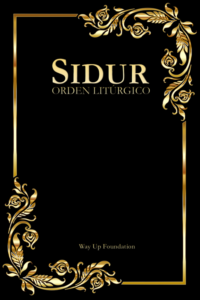
The Hebrew root “sdr” (סדר) means ‘order’, while the pronunciation “sidur” is primarily related to ‘liturgical order’. Additionally, it’s important to clarify the Hebrew term “Tefilá”, which means ‘prayer’, encompassing a series of supplications, praises, Scripture readings, and petitions within a specific section of the liturgy bearing this name. This term can refer to the Sidur broadly, such as the morning or evening prayers, and even to a singular prayer like the Amidah. Therefore, in certain contexts, it is preferred to translate it as ‘devotional time’.
In this debate, historically and biblically, the devotional has an spontaneous expression that depends on the human need to praise and communicate with the Creator, regardless of a formal order. Nevertheless, the majority who have had a relationship with God have also used a formal order for their devotional time, whether personal or communal.
It is important to mention that in situations where performing the devotional in a specific formal order is not possible, spontaneous expression becomes the correct and indispensable model. For example, if there is persecution or prohibition, spontaneity becomes essential. However, if the goal is to learn, discipline oneself, and not settle into a routine, it is advisable to follow an order that has arisen from one’s relationship with God, inspired even by Him and approved by the Messiah.
These arguments also address the question of which model is best to follow. Although aspects of a model in accordance with divine commandments will be detailed in other articles, the spontaneous form of worshiping God is fundamental, which invalidates any disqualification of a particular formal model. There are models that align more closely with divine values, but judging those who choose other models is unwarranted.
It is relevant to mention that alongside spontaneous or ordered expressions, there are personal and congregational devotions. In an ordered format, personal devotion has sections with distinct steps, while congregational devotions add, remove, and modify steps. Finally, it should be noted that there are specific orders for special appointments appointed by God (moadim), applicable to both personal and congregational devotions.
Considering all the above, the Way Up Foundation has edited a Sidur that approaches the ancient form of worship and follows the evolution that the followers of Yeshua (Jesus) would have followed in this regard. So stay tuned for its publication.
Author: Dr. Liber Aguiar
0 Comments